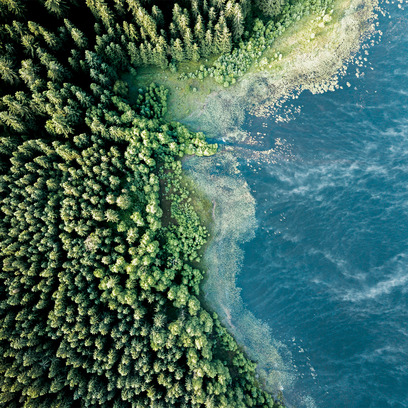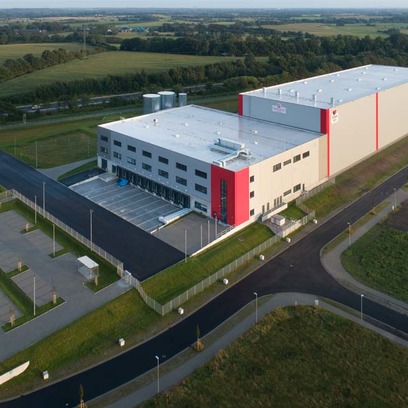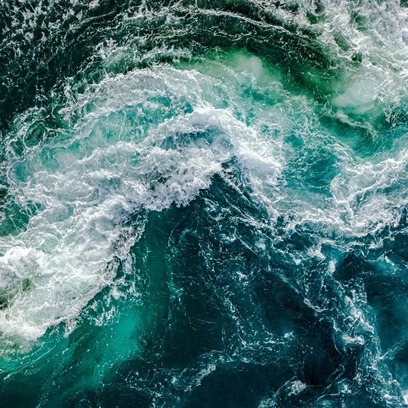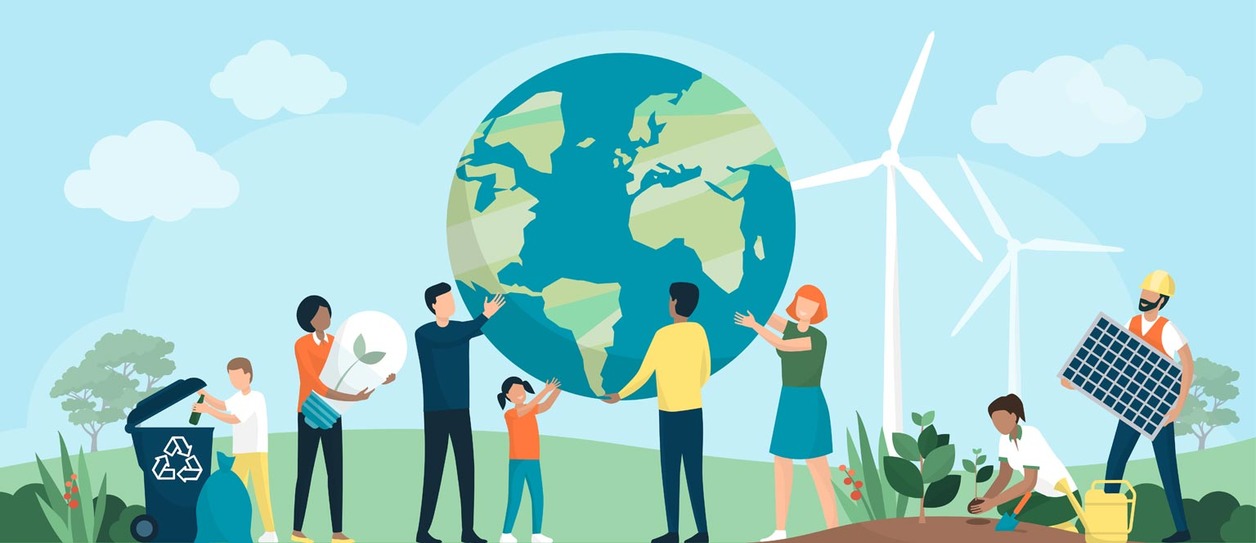Environmental protection is important to us

Sustainability plays an ever-increasing role in our product packaging. In the long term, we want to save even more packaging material and use more sustainable materials for our product packaging.
The savings we have achieved so far and the long-term reduction in packaging materials allow us to actively contribute to environmental protection. We are also constantly working on solutions to offer more environmentally friendly packaging materials for our products.
Certifications in accordance with ISO standards
We are incredibly interested in preserving resources. As legally required, we were also one of the first companies to be certified in accordance with DIN EN 50001* in 2016. This means that we introduced an energy management system, which focuses on recording energy flows in our company and assessing the energy efficiency. On this basis, we implement technical measures to help improve energy efficiency.
Currently, certification is no longer in accordance with DIN EN ISO 50001*, but with DIN EN 16247-1*. The area of energy efficiency therefore remains an important topic for Queisser Pharma GmbH & Co. KG.
We were certified in accordance with the environment management standard, DIN EN ISO 14001* back in 1997. The aim of this standard is to constantly improve our environmental performance and contribute to complying with environmental legislation within the company.
*The certifications mentioned in this section refer to the scope of the German area Flensburg/Handewitt where our headquarter is based.
Ecological responsibility & sustainability in production
Through new investments and renovations, we keep our production technology up-to-date. This means we are able to implement sustainable improvements promptly. In terms of sustainability and environmental protection, we support and pursue the conservation of energy and water. In addition, we monitor energy consumption using appropriate measuring devices, which are installed at important consumers throughout the entire company. This allows irregularities to be recognized in good time. The production of KPIs (e.g. power consumption / produced folding boxes) also offers a good opportunity for comparison and regulation.
We achieve our savings targets as a result of further measures:
- Sensitization by training our employees
- Monitoring of consumption through precise measuring methods and monitoring of processes
- Continual modernization
- Voluntary monitoring through certification by accredited companies
- Technical measures:
- The pumps in the heating sector have been refurbished and provided with control units, which guarantee night-time lowering and seasonal adjustment of the heating
- When procuring machinery, we check in advance that these are built in an energy-efficient manner, e.g. with energy-saving servomotors
- The ventilation systems stipulated by the German Pharmaceutical Products Act [Arzneimittelgesetz] can be better controlled and reduced through targeted adjustment of individual workspaces when required
- Areas, which are not used permanently as workspaces, are fitted with presence detectors so that it is not necessary to light them continually
Energy efficiency in logistics
Environment and resource protection play a role in building management at Queisser Pharma, along with other sectors of the company.
When building our logistics centre in Handewitt, the focus was on undercutting the threshold values of the German Energy Saving Regulation (EnEV) and on the energetic heating and cooling concept.
Within the overall concept of the building shell, considerably larger insulation properties were calculated than normal in order to minimise future energy losses. The project was implemented with greater insulating thicknesses on the façade and in the roof area. The threshold values of the German Energy Saving Regulation were undercut by about 32 percent.
The energetic heating and cooling concept incorporates the geographical specifics of our region between the seas.

The ventilation concept of the building makes provisions for air exchange during the night, as a result of which the cool night-time air from outside is exchanged with the internal air. This type of cooling means the building does not require any active supply of cold air, which would require a correspondingly high energy demand in the form of electricity and gas.
When heating the logistics centre, we do not use gas, as is usual in logistics centres. The environmentally friendly alternative here is district heating, which is provided by the radiation plates in the building. Only the upper floor, where physical labour is sometimes required, was equipped with active cooling (air conditioning).
With 100% green power
At our sites, we work exclusively with electricity from green sources. Conscious use of resources has an impact on the decisions we make in our day-to-day work.
We decided to use 100% environmentally friendly green power to produce our electricity. This means we can support environmental conservation and protect the climate in a sustainable manner.
The green energy comes from renewable energy sources and is obtained from hydropower. The ok-power label and the TÜV-Nord Environment Protection Certificate label the regenerative electricity as 100% green. The allocation of the ok-power label not only relates to the regenerative energy source, but also to promoting the construction of new generating plants. These two requirements are fulfilled with hydroelectric power generation. There are no CO2 emissions. You can find a corresponding certificate from our energy supplier HERE.

